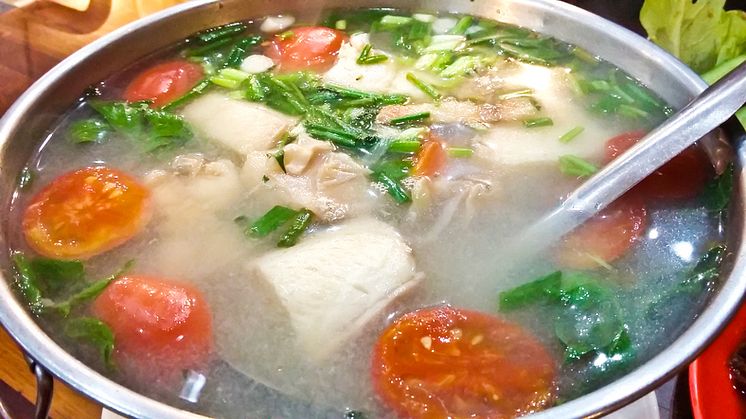
News -
Cooking with chloraminated water and table salt may cause toxic molecules
Stockholm, December 27, 2016 – Could cooking in chloraminated water pose a threat to human health? A study published earlier this year indicates there may be a risk that potentially harmful molecules are created when cooking food using chloraminated water and table salt.
The study was published early in 2016 by scientists in Hong Kong and China. Published in Water Research, a journal of the International Water Association (IWA), the researchers found several molecules that are almost completely new to research were created by cooking with chloraminated tap water and iodized table salt.
A press release from science publisher Elsivier said the authors of the study, from the Hong Kong University of Science and Technology and Nanjing University in China, noted ‘further studies are needed to find out more about these molecules and their effect, if any, on our health. In the meantime, limiting cooking time and temperature, and cooking with table salt fortified with iodate instead of iodide, could be safest’.
In most countries around the world, tap water is disinfected at public water works prior to drinking or cooking using processes such as adding chlorine or molecules called chloramines made from ammonia. These two processes – chlorination and chloramination – can have an effect on the chemical make-up of the water.
Elsivier's release said chlorine or chloramines in tap water can react with the iodized table salt added to food, creating a kind of acid called hypoiodous acid. While this in itself isn’t cause for concern, the acid can then react with the food and other organic matter in the tap water to create cooking iodinated disinfection byproducts (I-DBPs) – molecules that are almost completely new to researchers. For the new study, the team identified some molecules and tested their toxicity.
The release quoted Dr. Xiangru Zhang, corresponding author of the paper and Associate Professor at the Hong Kong University of Science and Technology, as saying: “I-DBPs formed during cooking with chloraminated or chlorinated tap water are something new to environmental chemists, toxicologists and engineers. They are relevant not only to drinking water researchers and practitioners but also to the public.”
The researchers analyzed the I-DBPs formed during cooking with chlorinated and chloraminated tap water. They simulated cooking with different types of tap water at varying temperatures and time, and added wheat flour and iodized salt to see what I-DBPs would be formed.
Using cutting-edge chemistry techniques, the research team identified 14 completely new molecules and determined the structure of nine molecules. They then carried out tests to see how toxic nine of the molecules are and found that some of the molecules are 50–200 times more toxic than others.
The Chinese researchers said more study was needed to determine exactly what adverse effects the molecules found could have on human health. Dr. Yang Pan, one of the study’s authors and Assistant Professor at Nanjing University, proposed some practical suggestions to limit the formation of the newly discovered molecules during cooking.
For example, the team suggest that people use chlorinated rather than chloraminated tap water, and use table salt fortified with potassium iodate instead of potassium iodide. Cooking at lower temperatures, for less time, also limits the formation of I-DBPs.
"Our understanding of the way different chemicals and other substances interact in our tap water is growing all the time, which is vital to how we as individuals can become empowered to protect our health through simple expedients such as installing efficient water purifiers at home or in businesses like restaurants," said Bluewater spokesperson David Noble.
Background
The study can be read below:
“Identification, toxicity and control of iodinated disinfection byproducts in cooking with simulated chlor(am)inated tap water and iodized table salt” by Yang Pan, Xiangru Zhang and Yu Li (doi: 10.1016/j.watres.2015.10.002). The article appears in Water Research, Volume 88 (January 2016), published by Elsevier.
Please note,
Bluewater will be exhibiting at the Kitchen & Bath Industry Show in Orlando, Florida, from January 10 - January 12, 2017. The company's advanced second-generation reverse osmosis Bluewater Spirit and Pro model ranges will be on display on booth S5087 and serving refreshingly pure tap water free of charge to visitors with a refillable water bottle.
